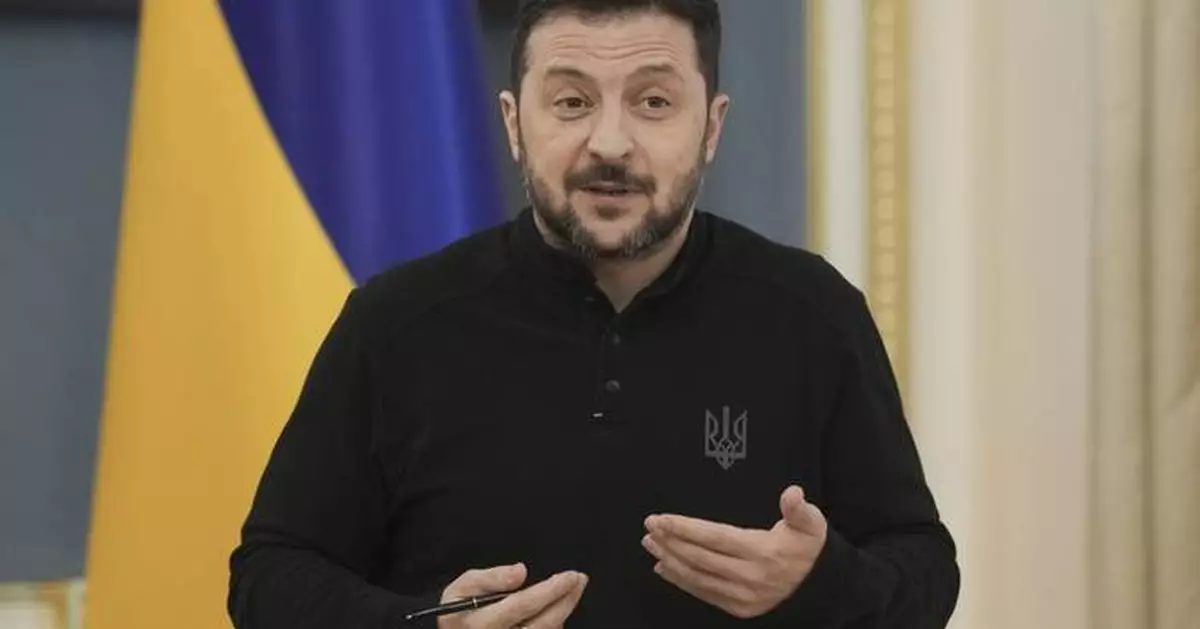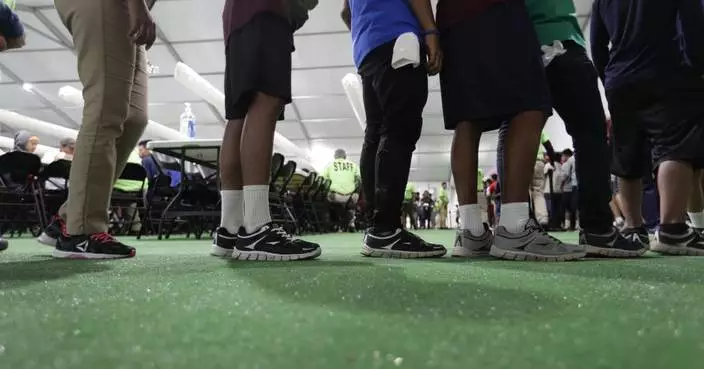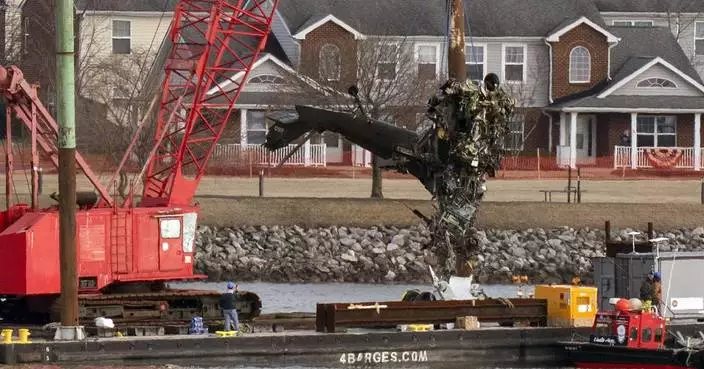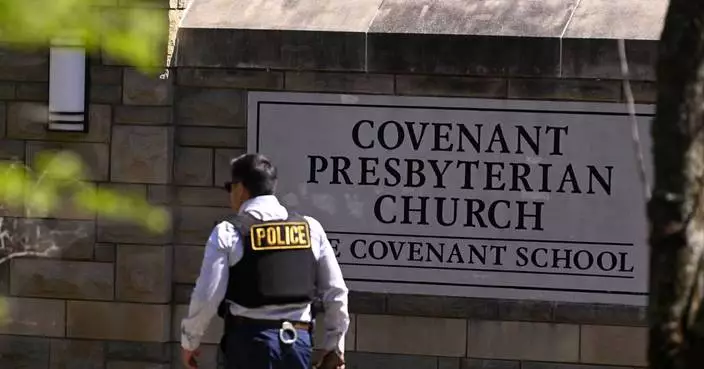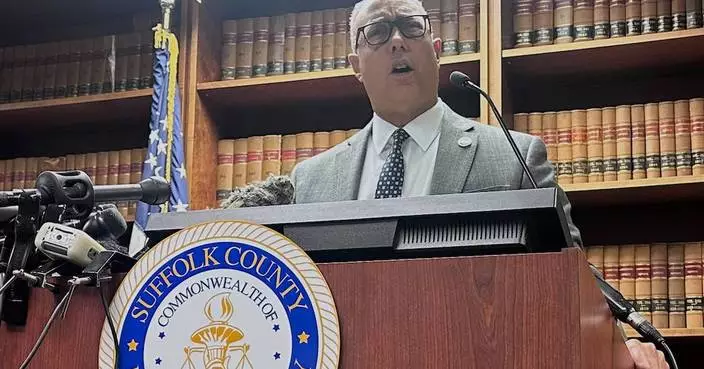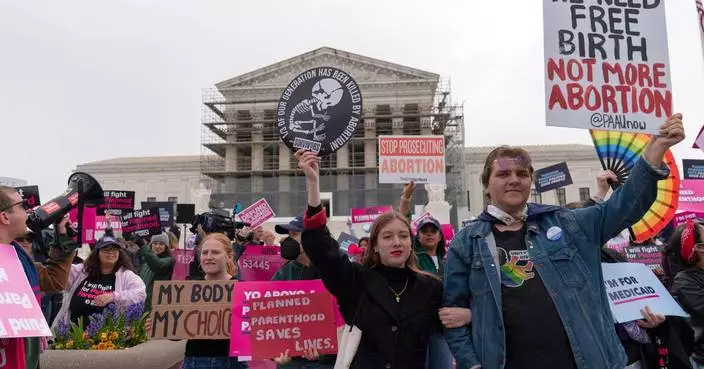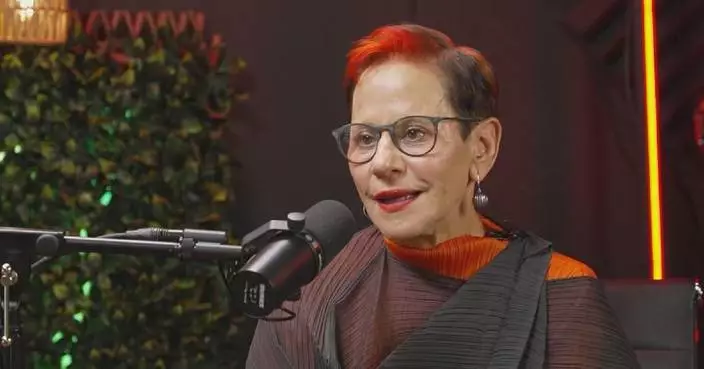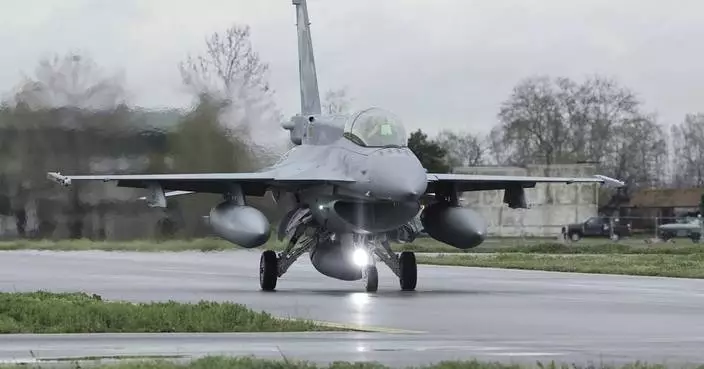KYIV, Ukraine (AP) — Ukrainian President Volodymyr Zelenskyy would have had to face a reelection campaign in the spring of 2024 if it had not been for Russia’s full-scale invasion. Now, the question of the legitimacy of his rule is being weaponized by Russia.
U.S. President Donald Trump also called Zelenskyy a “dictator without elections,” echoing Russian propaganda, but later appeared to rescind the comment by denying he said it.
It is not the first time Western officials have expressed concern about Zelenskyy’s tenure as president especially under martial law when his office has consolidated control of government policy to sustain and direct the war effort. Western officials have also privately expressed their preference for elections to take place in the last year, before Trump assumed office, according to lawmakers who maintain contacts with their European counterparts.
Zelenskyy has declined to hold polls until a ceasefire is declared in line with Ukrainian law and his Ukrainians largely support that decision.
Here is a look at why Ukraine has not been able to hold elections after the full-scale invasion:
Putin’s invasion of Ukraine triggered martial law in the country, which effectively postponed presidential and parliamentary elections. Facing an existential war, with a fifth of the country under occupation and millions of Ukrainians evacuated to third countries, holding polls was simply not logistically feasible.
Ukraine’s natural election period for its parliament was slated for October 2023 and Zelenskyy’s five-year term was up in May 2024.
Martial law is established in the Ukrainian constitution and another law states elections can’t be held when martial law is in place, which has been the case since the February 2022 invasion.
Zelenskyy’s position is that elections will take place once there is a ceasefire with Russia, at which point martial law will be lifted.
Russia, meanwhile, has used his remaining in power after his expired term as a tool to cast him as an illegitimate leader of Ukraine.
Zelenskyy has also said he would step down as president if Ukraine was granted NATO membership.
Holding elections while the war is ongoing would be counterproductive and weaken Ukraine at a critical juncture, Zelenskyy has said. It would be difficult to find a way for Ukrainian soldiers engaged in pitched battles to cast a vote, as well as the many millions of Ukrainians living abroad because of the war. Then there is the question of Ukrainians living in occupied Russian territory.
To back the president, Ukraine’s parliament passed a resolution affirming the legitimacy of Zelenskyy as president and reiterated elections are not possible until after the war ends.
Holding elections in the middle of a war would also sow division in Ukrainian society at a time when the country should be united against Russia, Zelenskyy has also said.
The one potential candidate widely expected to beat Zelenskyy in polls were he to run is former Army chief Valery Zaluzhny, the current Ukrainian ambassador to Britain.
Petro Poroshenko is a key political rival of Zelenskyy’s and the leader of the largest opposition party. He is unlikely to run again, analysts said, but his backing of a particular candidate would be consequential for elections.
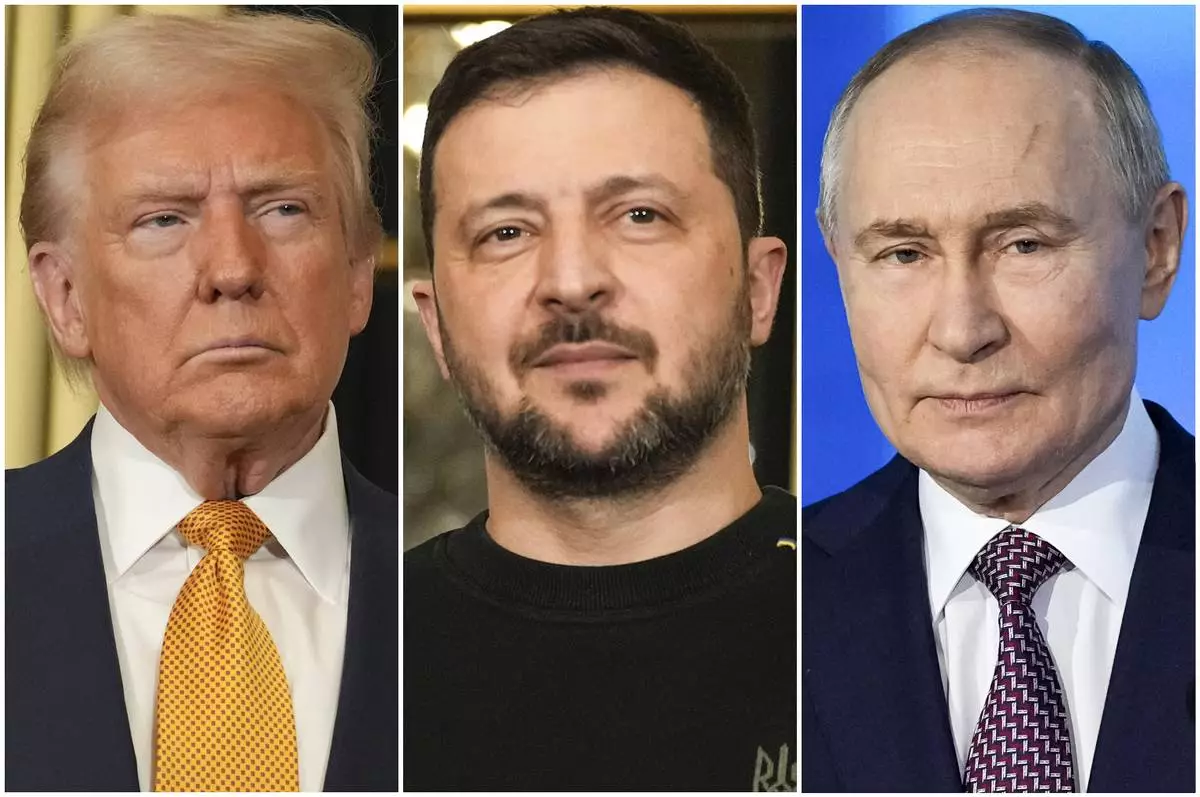
FILE - In this combination of file photos, President Donald Trump, left, and Ukraine's President Volodymyr Zelenskyy, center, are seen at the Elysee Palace, Dec. 7, 2024 in Paris, and President Vladimir Putin, right, addresses a Technology Forum in Moscow, Russia, Feb. 21, 2025. (AP Photo/Aurelien Morissard, left and center, Pavel Bednyakov, right, File)
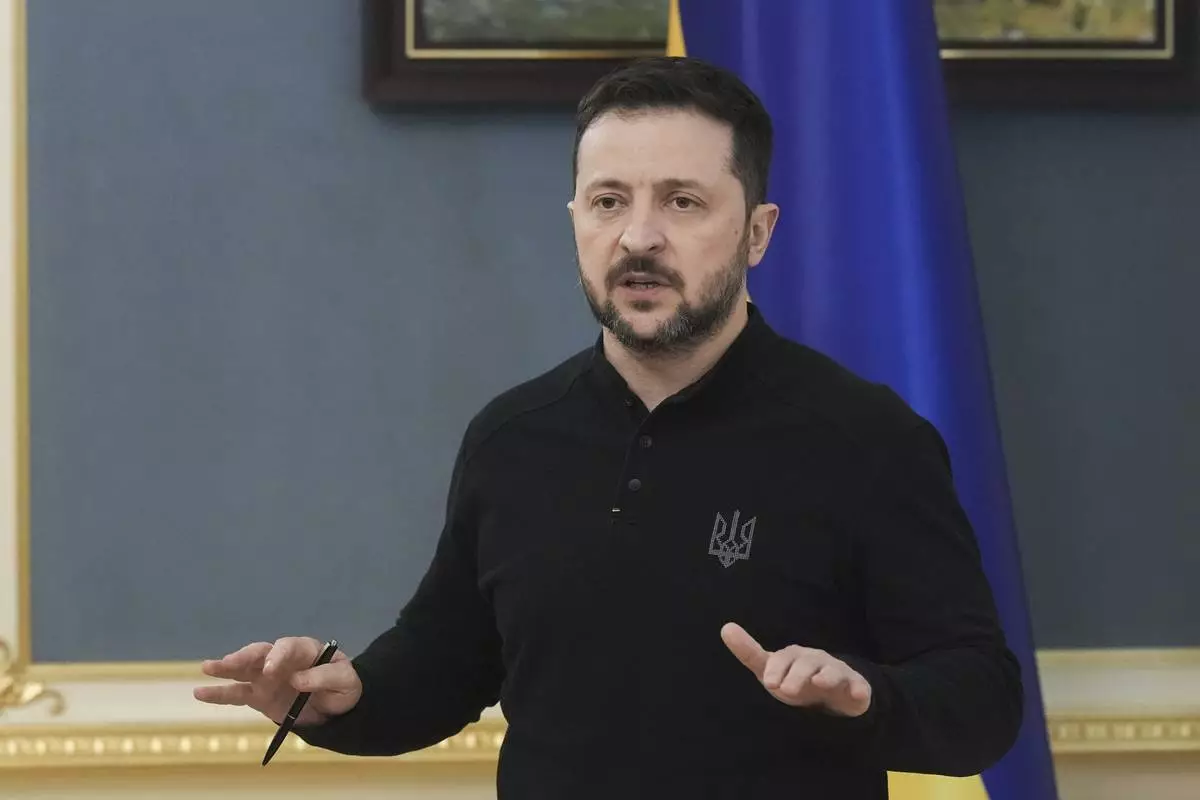
Ukrainian President Volodymyr Zelenskyy speaks during a briefing in Kyiv, Ukraine, Friday, March 28, 2025. (AP Photo/str)
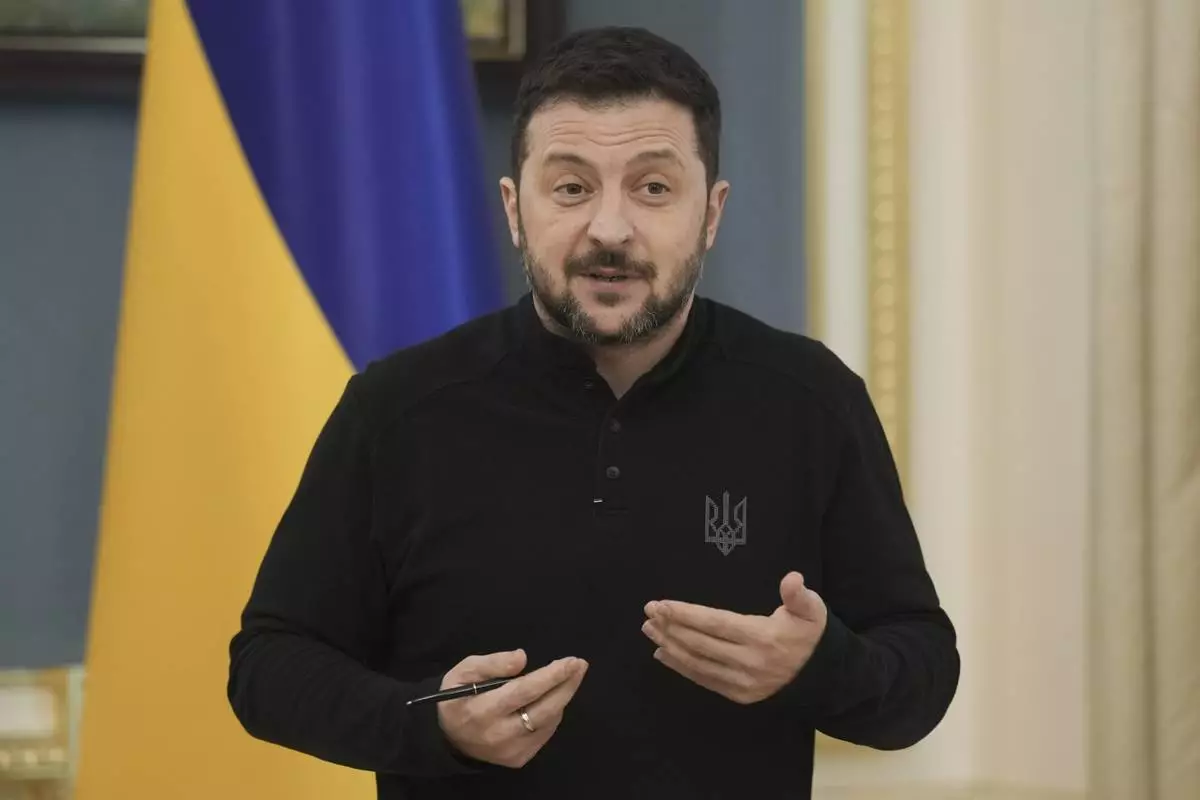
Ukrainian President Volodymyr Zelenskyy speaks during a briefing in Kyiv, Ukraine, Friday, March 28, 2025. (AP Photo/str)
WASHINGTON (AP) — President Donald Trump says his executive orders targeting law firms are being issued in the name of national security, with the White House asserting that the firms don't deserve access to sensitive U.S. government information.
But the firms fear the orders are being written so broadly as to potentially weaken national security by calling into question the status of security clearances of lawyers who, in addition to their legal practice, serve as military reservists and require their clearances to report to duty.
It's an example of the sweeping and sometimes unintended consequences of White House efforts to reshape civil society, with those affected in some instances not necessarily being the ones who were top of mind when the Trump administration announced the actions in the first place. Military veterans, for instance, have not been spared from Trump's ongoing slashing of the federal government.
Trump's law firm executive orders have generally targeted firms that have associations with prosecutors who previously investigated him or employ, or have employed, attorneys he perceives as political adversaries. The orders have consistently imposed the same consequences, including threatening the suspension of all active security clearances held by employees at the singled-out firms.
Security clearances are issued for government workers and contractors who require access to classified national security information as part of their job. The federal government has broad discretion over who does and who does not obtain a clearance.
It's unclear how many lawyers at the four firms who remain subject to executive orders — several others have averted them through settlements with the White House — hold security clearances either through their jobs or other work, or whether the Trump administration would move forward with plans to revoke the clearances of military reservists.
A White House spokesman, asked for comment, pointed to the provision of the order that says the clearances are to be suspended “pending a review of whether such clearances are consistent with the national interest.” The response seemed to suggest that clearances of reservists could potentially be spared.
In the meantime, though, the issue was raised during a court hearing Friday in which a lawyer representing WilmerHale, one of the targeted firms, noted that the firm has within its ranks military reservists who have security clearances. Another firm that's been subject to an executive order, Perkins Coie, also has said that it employs military reservists.
“I don’t think for a minute the government lawyer is going to come up here and tell you that they actually intended to suspend the reservists’ security clearances," Paul Clement, a prominent Washington appellate lawyer who is representing WilmerHale, told the judge. “But they’re painting with such a broad brush with this thing, they aren’t distinguishing sheep from goats at all.”
He said Friday that “two of those lawyers have to report for their reserve duty next week. Now, I can’t tell you for sure that they’re going to show up and they’re not going to be able to do their job because their security clearance has been suspended.”
A person familiar with the matter, who insisted on anonymity to describe non-public information, said about a half-dozen WilmerHale employees are reservists.
Several firms, including WilmerHale and Perkins Coie, have succeeded in winning court orders temporarily blocking enforcement of certain sections of the executive orders. The security clearance provisions, though, have remained in effect, a reflection of a president's expansive powers when ordering the suspension or revocation of clearances.
Dan Meyer, a lawyer who specializes in security clearances at the Tully Rinckey law firm — which is not among those targeted by the executive orders — said that he assumed the number of attorneys at major law firms is small and that it was possible military reservists might be able to keep their clearances, but it could conceivably require a lengthy adjudication.
“It may be that word will go quietly from the White House, ‘Don’t screw with any of these reservists at these law firms,’” Meyer said.
But, he added, “If the cat wants to claw the mouse, there’s an opportunity to do it.”
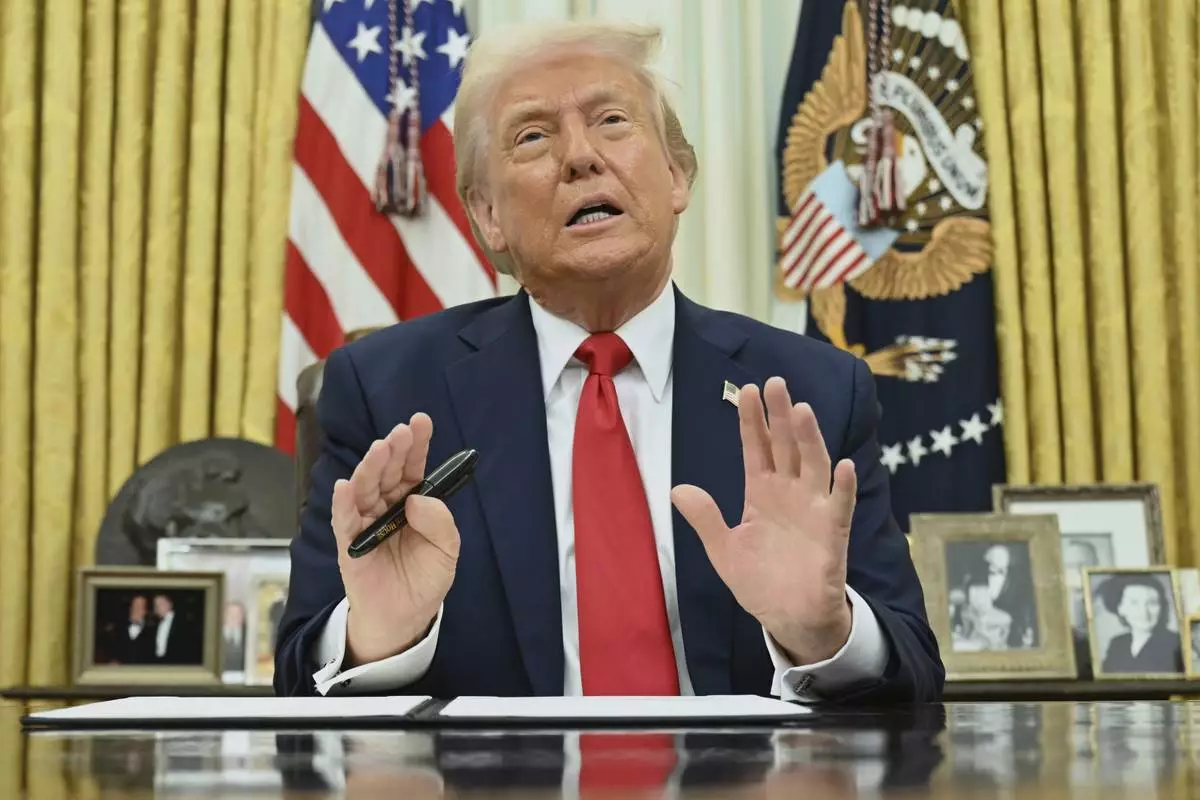
President Donald Trump speaks to reporters before signing an executive order in the Oval Office of the White House in Washington, Monday, March 31, 2025. (Pool via AP)





